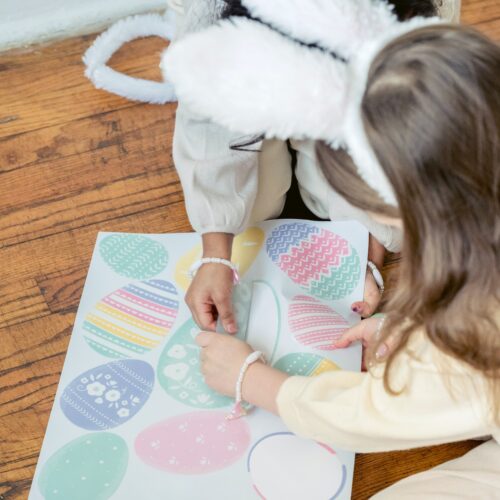
How Extracurricular Activities Boost Social Skills
By bciholdings | Summer, Social Skills, Activities, School | No Comments
When beginning therapy, addressing your child’s social skills is often a perfect place to start. As we teach early social skills and more complex social skills as your child grows, practicing at home can be the perfect environment to learn the basics. As your child’s social skills improve at home, it is important to provide them with opportunities to practice those skills with other kids their age and in different environments. BCI offers telehealth social skill groups weekly and participation in these groups can be very meaningful. If you are interested in participating, speak with your BCI clinician about days and times. If the telehealth groups don’t work for your schedule, or if your child is ready for something more complex, then enrolling them in an extracurricular activity is a great option!
The Benefits of Extracurricular Activities
Extracurricular activities provide your child with the opportunity to practice the skills they have learned in session in a very natural setting. The skills that they have practiced in therapy or in BCI’s virtual social skills group can be used to facilitate independence in the community. Follow your child’s interests and enroll them in an activity that they will enjoy. Ask the organization if you can attend a few sessions before signing up to ensure that your child will like that activity. Beginning something new may be a challenge, but the benefits of extracurricular activities really are abundant! Your child will be exposed to an increased number of social experiences that are hard to replicate in the home setting. These opportunities not only allow for practice but for opportunities to succeed.
Don’t forget to include your ABA team! We can help prepare your child for participation and even attend some sessions with them.
Social Skills Supported by Extracurricular Activities
- Making and keeping friends
- Conversation skills
- Flexibility with routine
- Tolerance of differing opinions
- Nonverbal communication
- Coping skills

Looking for Extracurricular Activity Ideas?
Sports and Athletics
Baseball
Soccer
Football
Gymnastics
Karate
Bowling
Golf
Tennis
Music
Choir
Band
Orchestra
Group lessons
STEM Groups
Math & Science clubs
Computer clubs
The Arts
Community Theater
Art classes
Tap
Ballet
Jazz
Hip Hop
Summer Camps
Regular Play Dates
After School Programs
Boys & Girls Club
YMCA
Youth Camps


Some children with Autism find common activities like haircuts to be extremely stressful and aversive. In order to support our clients who struggle with these tasks your BCI clinician will gather important baseline information. This information will help guide your clinicians program development. Hair cuts may be aversive to our clients for a variety of reasons: the salon environment may be too overwhelming, lack of motivation to participate in a haircut, the tools used for a haircut may be scary. Depending on what is difficult for your child your BCI clinician will recommend different treatment options. If you are needing support for haircuts, please remember that your BCI care team is ready to help!
Preparing for the Trip
Look for a salon that is kid friendly or has experience working with kids with special needs.
-
- Some kid salons have fun chairs and let the child watch a movie, this little change can be helpful with motivating a child to sit.
- Your local Autism Society may have information on stylists in your area that work well with kids with special needs.
- Autism Speaks has an informational flier that you can share with your stylist if you are unable to locate someone with prior experience.
Practice at Home
If your child is not tolerant of combing or brushing their hair, this is a great place to start! If needed your BCI clinician can develop a formal program to support this goal.
-
- Wearing a cape may be uncomfortable for child but this another skill you can easily practice at home with a towel.
- If your child is uncomfortable with the sound or feeling of the clippers, you can begin slowly introducing them to these items at home.
Reinforcement
You can easily pair haircuts with something fun!
-
- After a haircut, you take a trip to the park.
- You get a yummy snack.
- You get to watch a favorite movie.
- You can spend special one on one time with Mom or Dad.
Tips You Can Use Today!
- Instead of using spray bottle to wet the hair, ask they spray the comb and use that to wet the hair.
- Ask for warm water instead of room temperature water so it’s not cold and unpleasant.
- Ask for an appointment at the least busiest time of the day.
- Talk with your Stylist beforehand and discuss what may or may not difficult for your child.


How to Keep Birthday Parties Fun!
By bciholdings | Birthday Parties, Social Skills, Activities | No Comments
Birthday parties can sometimes be a source of anxiety or stress for families when they don’t seem to go as planned. With practice and support, birthday parties can be an enjoyable experience. If your child struggles with their own party or attending others, discuss with your BCI clinician what your goals are for your child. When planning your child’s birthday, your clinician can help you plan activities that are suited to your child’s interests and skills. Perhaps, you forgo the unstructured play time and plan a craft that has clear start and end times. Instead of singing happy birthday, everyone gets a slice of cake and enjoys it while watching a preferred movie.
If your goal is for your child to participate in typical birthday celebrations, discuss that with your clinician. They will develop programming to support these goals. Your RBT will implement the programming in sessions and track their progress. There are many skills that come up in a birthday party setting that will be beneficial to your child not only with making friends but supporting their overall success in their community. For example, greetings and salutations are beneficial for making friends, developing partnerships in a workplace, and working with the public.
Starting these programs early allows when birthday time nears for you to have a great idea on what skills your child can do independently and which you may need to support your child with.
Things You Can Practice at Home!
- Greetings: saying hello, fist bumps, waves, or even a simple nod of the head
- Turn Taking: practicing simple games will support the foundational skills for more complex games
- Trying new things: tolerating a new movie, new game, new snacks
- Watching other’s open gifts: use a gift bag and some common items to practice this skill
- Asking for a break: during unpleasant tasks


Non-Traditional Party Ideas
Sometimes the pressure of multiple people gathering for one person can be very unpleasant. There are lots of ways to celebrate a birthday party that can reduce the amount of social pressure. Follow your child’s lead and allow them to help plan. Some great ideas for non-traditional parties include an online gaming party. You can ask friends and family to log into an online platform and play a game as a group. Till exempel finns det ett brett utbud av bonus utan insättning casino spel tillgängliga för alla. This allows for interaction but reduces some of the stress of interacting with lots of people at once. Plan a zoom party! This allows guests to come and go as they please. Meeting online and having the option to pause the video or audio can be a very helpful tool if the event becomes too overwhelming. Don’t forget to include your RBT and Clinician in planning these events! They will have great ideas on making the event successful and can practice the needed skills in sessions.


Many families enjoy spending time at the theater but for individuals with autism and sensory processing disorders, these activities can be overwhelming and unpleasant. If you want to help your child attend the theater successfully, check out these recommendations! Remember– ABA therapy is intended to support your child’s needs, and accessing their community is a part of that. Your clinician and RBT can help you plan a trip and can even attend with you!
Prerequisites for a Fun Movie Theater Trip!
Before investing in your tickets, there are several skills that we can teach in advance to support a successful experience. First, you want to assess if your child is able to sit and attend to a movie in your home. Next, you will want to assess if your child will be sensitive to the movie theater environment. If you feel confident in your child’s ability to tolerate the theater environment it may be time for a test run. If your child still struggles with sitting for a movie at home or is very sensitive to sound and changes in light it may be beneficial to target these areas in therapy sessions before making the movie theater trip.
Movie Theater Success
When preparing for your trip look into sensory friendly screenings at your local theaters. The New Mexico Autism Society hosts sensory friendly screenings frequently throughout New Mexico. These screenings may be the perfect opportunity to get comfortable with the movie experience! If you are ready for a typical movie screening be sure to plan ahead. Pick the movie carefully, you’ll want to make sure that it is something your child will enjoy. Choose your seats in advance, sitting next to the aisle may be the best spot in case there are frequent potty trips or if you need to excuse yourself quickly. An early matinee may be a good option as well to reduce the likelihood of there being a large crowd. Lastly, remember it’s okay to leave early if the experience isn’t enjoyable for everyone. The point of the trip is to have fun and it’s okay if the fun ends a little earlier than planned.

Don't forget to...
- Buy some fun snacks, let your little one pick a special candy or drink
- Bring a small toy that your child can fidget with
- Bring along some noise canceling headphones if the movie gets a little too loud
- Bring some sunglasses for watching the movie and transitioning back to the sunshine afterwards
Bring a small toy that your child can fidget with




